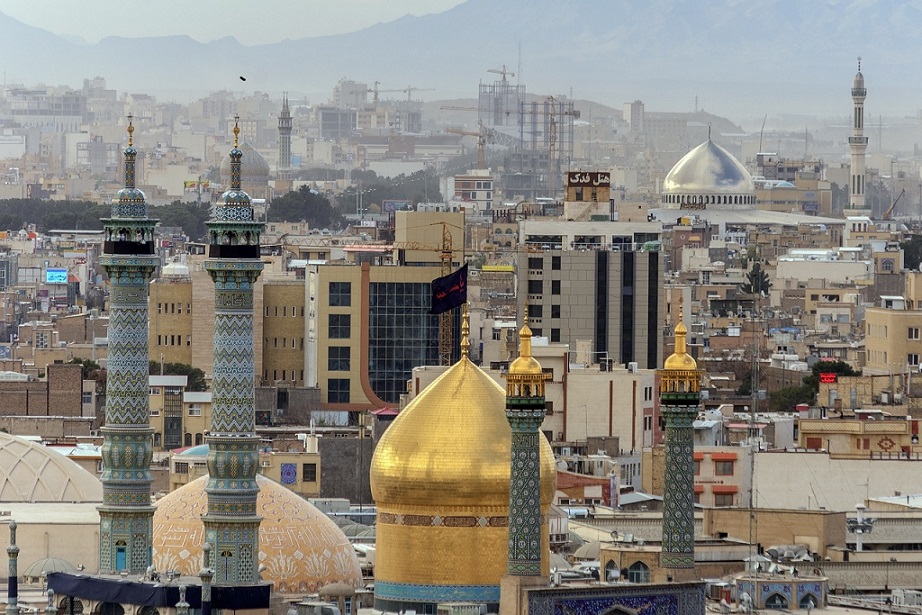The rise of atheism in Iran post-Islamic Revolution is multifaceted, influenced by historical, social, cultural, and political factors. Iranians strive for religious freedom, human rights, and secular governance, essential for a more just, inclusive, and pluralistic society as they do not navigate the revolution’s legacy and envision their nation’s future.
 Rola Zamzameh*
Rola Zamzameh*
The Islamic Revolution of 1979 marked a significant turning point in Iran’s history, ushering in an era of religious governance under the guidance of Shia clerics. However, alongside the rise of political Islam, there has been a parallel trend of increasing secularization and the growth of atheism in Iranian society.
Before the Islamic Revolution, Iran was a predominantly Muslim country with a diverse religious landscape that included Sunni and Shia Muslims, as well as religious minorities such as Christians, Jews, and Zoroastrians. While religion played a significant role in public life, there was also a strong tradition of secularism and intellectualism, particularly among the urban middle class and educated elite.
The establishment of an Islamic Republic led by clerics and the imposition of religious laws and norms sparked resistance and disillusionment among segments of Iranian society. The heavy-handed enforcement of Islamic morality codes, restrictions on personal freedoms, and the politicization of religion alienated many Iranians who sought greater individual autonomy and secular governance. The Iranian government’s crackdown on dissent, including political activists, journalists, and religious minorities, has fuelled resentment and disillusionment with the regime and its religious ideology.
Atheism has emerged as a form of protest against the religious establishment and its authoritarian rule, offering an alternative worldview that rejects supernatural beliefs and divine authority.
The post-revolution period has witnessed a resurgence of intellectual inquiry and critical thinking among Iranian youth, facilitated by technological advancements and information access. Atheist thinkers and writers have emerged, challenging religious dogma and advocating for secularism, humanism, and rationalism as alternative frameworks for understanding the world.
 The growth of atheism in Iran has coincided with broader social and cultural transformations, including urbanization, globalization, and exposure to Western ideas and values. Young Iranians, particularly in urban centres, are increasingly questioning traditional religious beliefs and practices, embracing secular lifestyles, and seeking alternative sources of meaning and identity.
The growth of atheism in Iran has coincided with broader social and cultural transformations, including urbanization, globalization, and exposure to Western ideas and values. Young Iranians, particularly in urban centres, are increasingly questioning traditional religious beliefs and practices, embracing secular lifestyles, and seeking alternative sources of meaning and identity.
Despite the growing visibility of atheism in Iran, atheists and secular activists face significant risks and challenges, including social stigma, discrimination, and persecution by the state. Apostasy, or renouncing Islam, is punishable by death under Iranian law, forcing many atheists to conceal their beliefs or seek refuge abroad to avoid prosecution.
The Iranian diaspora, consisting of millions of expatriates and refugees scattered around the world, includes a significant number of atheists and secularists who have fled religious persecution and political repression in their homeland. Diaspora communities provide a supportive network for atheists to connect, organize, and advocate for secularism and human rights in Iran.
 The growth of atheism in Iran reflects broader global trends of secularization and the decline of religious influence in public life. While atheism remains a minority position in Iran, its increasing visibility and influence signal a growing demand for secular governance, individual liberties, and freedom of conscience.
The growth of atheism in Iran reflects broader global trends of secularization and the decline of religious influence in public life. While atheism remains a minority position in Iran, its increasing visibility and influence signal a growing demand for secular governance, individual liberties, and freedom of conscience.
However, the entrenched power of religious institutions and the authoritarian nature of the Iranian regime present formidable obstacles to meaningful reform and change.
Moreover, atheism plays a crucial role in the aspiration for a secular and laicized future in Iran, reflecting a collective social desire for the separation of religion from state affairs. As Iranians strive for greater individual freedoms, human rights, and political reform, atheism emerges as a potent force challenging the dominance of religious orthodoxy in public life.
By advocating for the disentanglement of religious dogma from governmental institutions and legal frameworks, atheists promote a vision of a society where individuals are free to express diverse beliefs without fear of discrimination or persecution.
 In this context, atheism becomes a catalyst for fostering pluralism, tolerance, and inclusivity, essential elements for building a more just and equitable society in Iran.
In this context, atheism becomes a catalyst for fostering pluralism, tolerance, and inclusivity, essential elements for building a more just and equitable society in Iran.
Furthermore, atheism catalyses promoting critical thinking, rational inquiry, and evidence-based decision-making, all vital components of a thriving secular democracy. By encouraging scepticism towards religious authority and superstition, atheists pave the way for the advancement of science, education, and innovation, laying the groundwork for a more enlightened and progressive society. As Iran navigates its path towards the future, the embrace of atheism as a driving force for secularism and laicization offers hope for a nation where individual rights are respected, and governance is guided by principles of reason, fairness, and equality.
*Rola Zamzameh: Senior journalist of the European Union Commission and Parliament.
(Photos: Pixabay)
*NOTE: The views expressed in this article are those of the authors and do not necessarily reflect the views or opinions of The Prisma.












.jpg)












